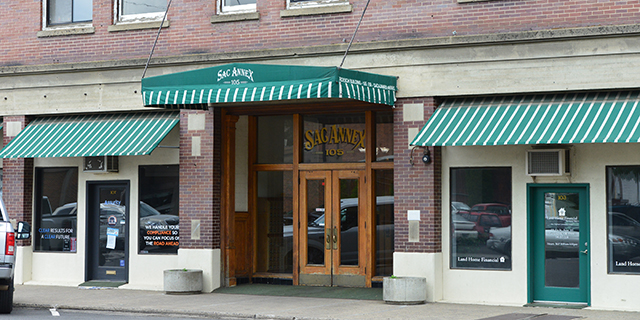News of the weird: 18-year-old college student elected mayor of Arkansas city
Published 9:25 am Thursday, December 8, 2022

- Jaylen Smith, the new mayor of Earle, Arkansas, posted this photo to his Facebook account in July.
EARLE, Ark. — An 18-year-old college student has been elected to serve as mayor of a small east Arkansas city, becoming one of the youngest people to serve as a city’s top leader in the U.S.
Jaylen Smith, who is Black, was elected mayor of Earle in a Tuesday, Dec. 6, runoff election, winning 235 votes to Nemi Matthews’ 183, according to complete but unofficial results.
He’s among the youngest mayors elected in the United States and would be the youngest member of the African American Mayors Association. Phyllis Dickerson, chief executive officer of the association, told the Arkansas Democrat-Gazette that the association’s current youngest member is Cleveland Mayor Justin Bibb, who is 35.
Smith is among a handful of people elected mayor before turning 20, including Michael Sessions, who was elected mayor of Hillsdale, Michigan, in 2005 when he was 18; and John Tyler Hammons, who was elected mayor of Muskogee, Oklahoma, in 2008 when he was 19.
Smith, who graduated from Earle High School in May, campaigned on improving public safety and bringing new businesses, including a grocery store, to the city of about 1,800 people 25 miles northwest of Memphis, Tennessee. He is a student at Arkansas State University Mid-South in West Memphis, Arkansas.
“People looking at me, well I’m too young, he has no experience, he’s fresh out of high school,” Smith told Little Rock TV station KATV. “But I used to always tell people you have to start somewhere in life.”
Nantucket’s topless beaches bylaw approved by state
NANTUCKET, Mass. — A bylaw that allows anyone, regardless of gender, to go topless on Nantucket’s beaches has been approved by the Massachusetts attorney general’s office.
The Gender Equality on Beaches bylaw amendment passed 327-242 at the resort island’s town meeting in May, but the attorney general’s office had to review the measure to ensure that it did not conflict with the state constitution.
The town has the authority to choose what activities it allows on its beaches, the attorney general’s office wrote in its decision, made public Tuesday, Dec. 6.
“We approve the Town’s vote authorizing any person to go topless on any public or private beach in Nantucket because we discern no conflict” with the constitution, the ruling said.
The bylaw was originally proposed by seventh-generation Nantucket resident Dorothy Stover.
“Really this is righting a wrong — catching up to what was already legal for men, allowing the space for all bodies to be topless,” Stover told WBZ-AM radio.
She had previously said her hope was to normalize bodies of all shapes and sizes and foster an environment of acceptance.
The bylaw’s approval also got the thumbs-up from a state lawmaker who represents the island.
“Nantucket beaches have been officially approved to allow both men AND women to go topless — a win for gender equity (& tan lines️),” Rep. Dylan Fernandes tweeted.
Amid outcry, San Francisco pauses on ‘killer police robots’
SAN FRANCISCO — San Francisco supervisors voted Tuesday, Dec. 6, to put the brakes on a controversial policy that would have let police use robots for deadly force, reversing course just days after their approval of the plan generated fierce pushback and warnings about the militarization and automation of policing.
The Board of Supervisors voted unanimously to explicitly ban the use of robots in such a fashion for now. But they sent the issue back to a committee for further discussion and could vote in the future to let police use robots in a lethal manner in limited cases.
The board voted last week to allow the use of deadly robots in extreme circumstances. The police department said it had no plans to arm the robots with guns but wanted the ability to put explosives on them and use then to contact, incapacitate or disorient dangerous or armed suspects when lives are at risk.
The initial vote thrust the famously liberal city into the center of a debate about the future of technology and policing, with some saying arming robots was a step too close to something one would see in a dystopian science fiction movie. Though robot technology for policing has become more widely available, departments across the country have rarely used it to confront or kill suspects.
Three supervisors who rejected the policy from the beginning joined dozens of protesters Monday outside City Hall to urge the board to change course. They chanted and held signs with phrases like “We all saw that movie… No Killer Robots.”
Supervisor Dean Preston was among them, and on Dec. 6 he told his colleagues the public hadn’t been given enough time to voice their concerns about such a pressing issue.
“The people of San Francisco have spoken loud and clear: There is no place for killer police robots in our city,” he said in a statement after the vote. “We should be working on ways to decrease the use of force by local law enforcement, not giving them new tools to kill people.”









